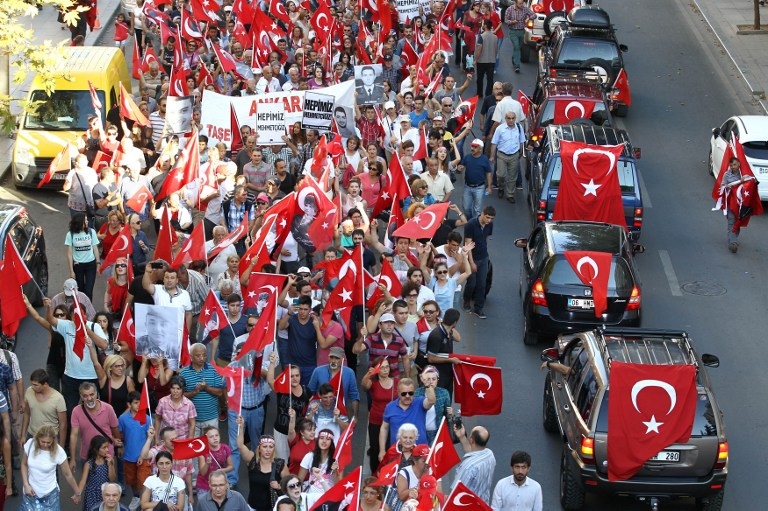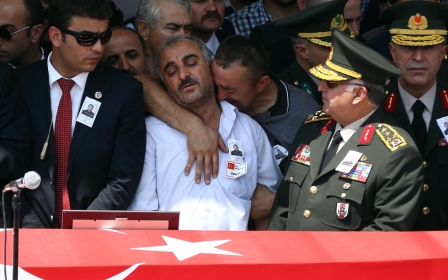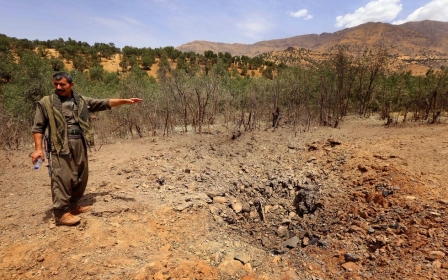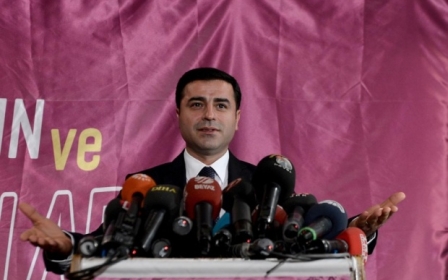4 Turkish police killed in PKK bombing: Security sources

Four Turkish police were killed on Thursday in a bomb attack on their vehicle in the country's southeast blamed on the outlawed Kurdistan Workers' Party (PKK), sources told AFP.
The attack is the latest deadly strike on the security forces blamed on the PKK since the Turkish government launched a major "anti-terrorist" campaign against the Kurdish militants in July.
A local police chief and three other officers were killed when a remote-controlled bomb was detonated on a road in the Dargecit district of Mardin province, security sources said.
The police team was on its way to respond to a fire at a school in Dargecit when the attack took place, according to the source.
The PKK and the armed forces have traded fire daily since a two-year-old ceasefire fell apart in July.
The military has been carrying out air raids and other operations against the group's strongholds in southeast Turkey and in northern Iraq.
At least 260 members of the PKK have been killed and hundreds of others wounded, according to recent figures reported in the Anatolia news agency.
Meanwhile, some 70 members of the Turkish security forces have been killed in attacks blamed on the PKK, setting back hopes for an end to its three-decade insurgency that has claimed tens of thousands of lives.
Selahattin Demirtas, the leader of the pro-Kurdish Peoples' Democracy Party (HDP), said on Wednesday that it was "impossible" to hold snap polls in November because of the surge in violence between security forces and the Kurdish rebels.
Stay informed with MEE's newsletters
Sign up to get the latest alerts, insights and analysis, starting with Turkey Unpacked
Middle East Eye delivers independent and unrivalled coverage and analysis of the Middle East, North Africa and beyond. To learn more about republishing this content and the associated fees, please fill out this form. More about MEE can be found here.




